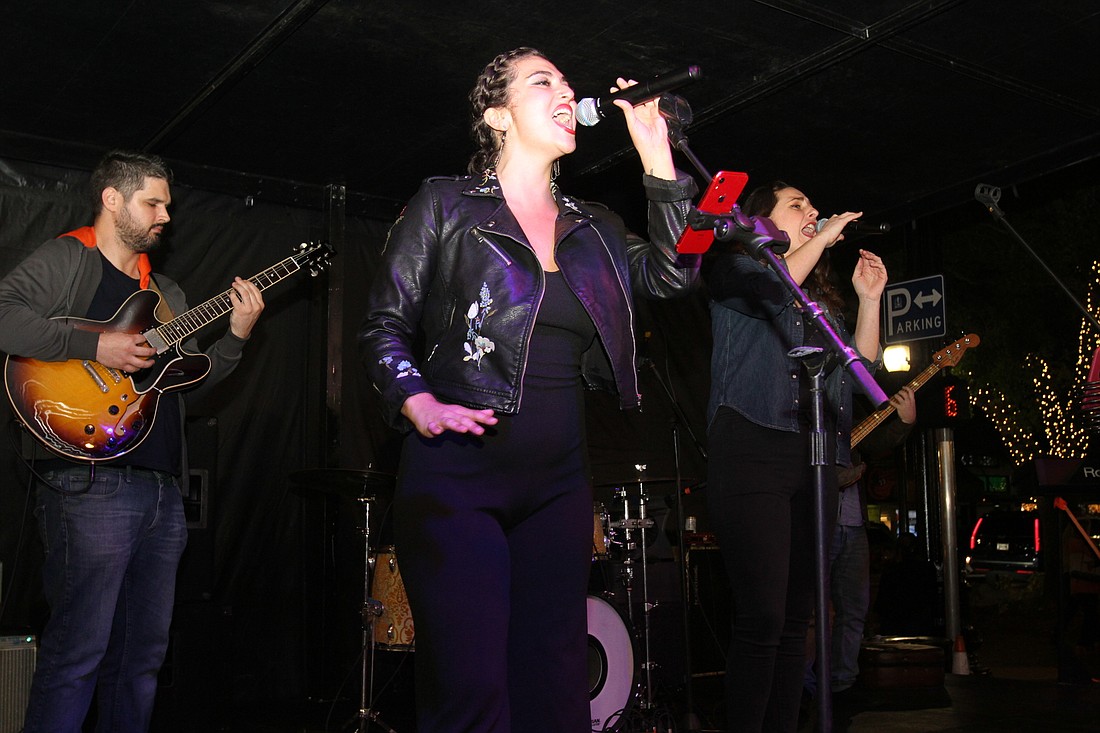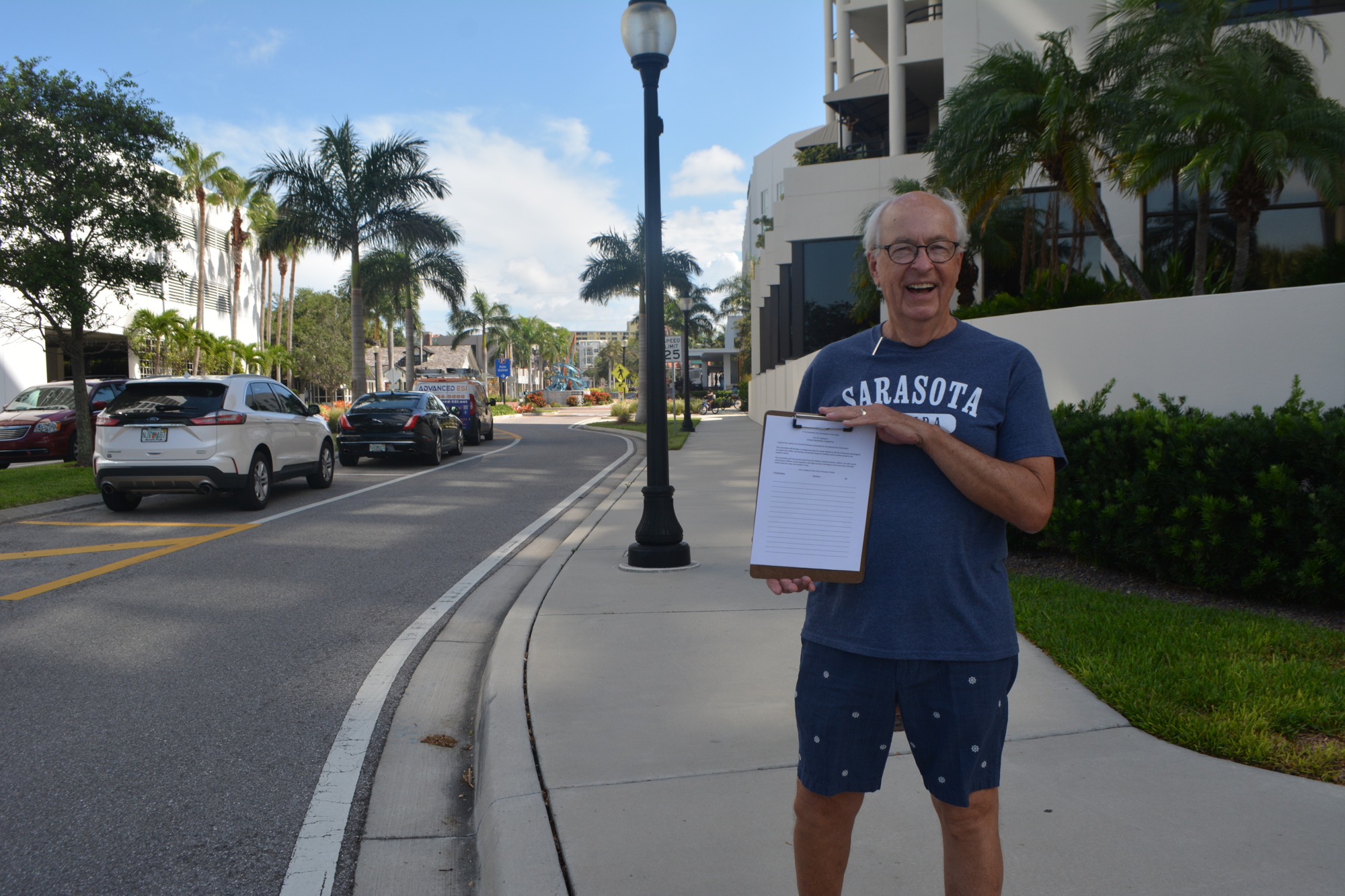- October 19, 2022
-
-
Loading

Loading

In a series of emails and testimony at public meetings, residents have aimed their ire at the city’s sound ordinance, stating that the laws as written — and enforced — fail to adequately address problematic noise.
“Having a vibrant downtown doesn’t mean you need to have a loud, drunken, unregulated bar scene, which downtown Sarasota has become,” said John Bordeaux, a resident of The Mark condominium, in an April email to city officials.
An online petition with more than 2,000 signatures, promoted by Gator Club, paints an alternative picture: one where the prospect of more stringent rules would be calamitous for the vibrancy of downtown and where those who object to the current ordinance are upset with noise that should not be unexpected in the city’s urban core.
“They call the police. They make complaints to the city commissioners — not only from our business but from people walking downtown, complain about the city blowing the sidewalks off,” Gator Club General Manager Jamie Brester said. “It’s really a concern for downtown Sarasota in general, not just our business.”
For years, city officials have struggled to navigate the conflicting perspectives on the best way to manage sound, particularly downtown. The City Commission was scheduled to discuss revisions to its sound ordinance in April — the culmination of a conversation among officials that began in 2019 — but the board delayed that agenda item at the request of City Attorney Robert Fournier. The city attorney said he will likely be ready to revisit the subject at a commission meeting in the fall at the earliest.
Fournier said there are layers of complexities to conversations about local sound regulations, and taking everything on at once has proven difficult.
Fournier’s initial focus was on streamlining the city’s existing regulations and making them easier to enforce, because law enforcement had raised concerns about it being unclear which provisions of the law apply in which situations. Fournier sought to simplify the section of the ordinance outlining decibel limits, eliminate distinctions between amplified and unamplified sound and allow the use of a “plainly audible standard” to determine whether a sound violated the ordinance.
As Fournier prepared to present this streamlined ordinance for consideration, however, he heard from members of the public concerned about the proposal. Residents expressed concerns about the proposed hours at which nighttime rules would take effect — 11 p.m. on weekdays and midnight on weekends or holidays. Others took issue with a provision that allowed for special events to seek a permit exempting them from the regulations in the sound ordinance. As those residents pushed for tougher rules, backers of the online petition shared an opposing perspective.
“If we lower the [limits in the] sound ordinance to ‘elevator music,’ that would really hurt a lot of businesses throughout the city,” said Shantel Norman, lead singer in the local band Jah Movement and the starter of the online petition against more restrictive noise rules.
When the city does revisit the ordinance, Fournier wants to tackle the subjects that have been raised piece by piece. He’s hopeful that by dividing the conversation into more manageable bites, officials will finally be able to implement changes that Fournier believes have been necessary for nearly a decade.
As stakeholders await the next formal conversation about the sound ordinance, one resident is attempting to build grassroots support for an alternative process to consider potential changes.
Drew Clearie has owned a unit at the Bay Plaza condominium on Gulfstream Avenue for 15 years, but he didn’t feel the need to get involved with city noise issues until the Art Ovation hotel opened across the street in 2018. Frustration with late-night music coming from the hotel’s rooftop bar inspired him to look into the sound ordinance, and he saw areas where he thought protection for residents was lacking.
Still, Clearie recognizes that his experience and the experience of other residents isn’t the only thing that will guide the city’s decision-making. That’s why he’s proposing the creation of a citizen advisory board focused specifically on noise issues. Clearie said he’s gathered nearly 500 signatures in support of the concept of a sound ordinance committee. The petition suggests the committee would collect “input from city residents, business owners, Realtors, city staff, sound enforcement officers, sound engineers and legal counsel” to address noise issues.
In the process of circulating the petition, he’s reached out to people in other neighborhoods and found concerns about sound aren’t limited to downtown. Some residents were upset about noise from leaf blowers; others spoke about boomboxes and loud cars.

Brester said she’s willing to have a conversation with residents and wants to be a good neighbor. But in her experience, some of the most vocal complainants raise unreasonable objections to noise that complies with the city’s rules. She said holding occasional outdoor events with live music is vital for her business, and she questioned why someone would move into a home overlooking a strip of bars if they couldn’t tolerate some noise.
“You can’t tell me you bought a million-dollar condo and don’t have soundproof windows,” Brester said.
Clearie challenged the characterization of downtown residents as overbearing obstructionists, and he doesn’t think addressing resident concerns needs to detract from anyone’s livelihood.
“I understand if you’re in the business of selling alcohol and playing loud music,” Clearie said. “I don’t want to interfere any way in anyone’s business, but I think there is maybe some common mutual agreement to be had.”
Changing noise rules might be a daunting task, but Clearie said issues will only intensify as more residents move downtown, so he feels the time is right for action.
“If it was easy, it would have been done already,” Clearie said. “I see an opportunity for the City Commission to take a real leadership role here.”